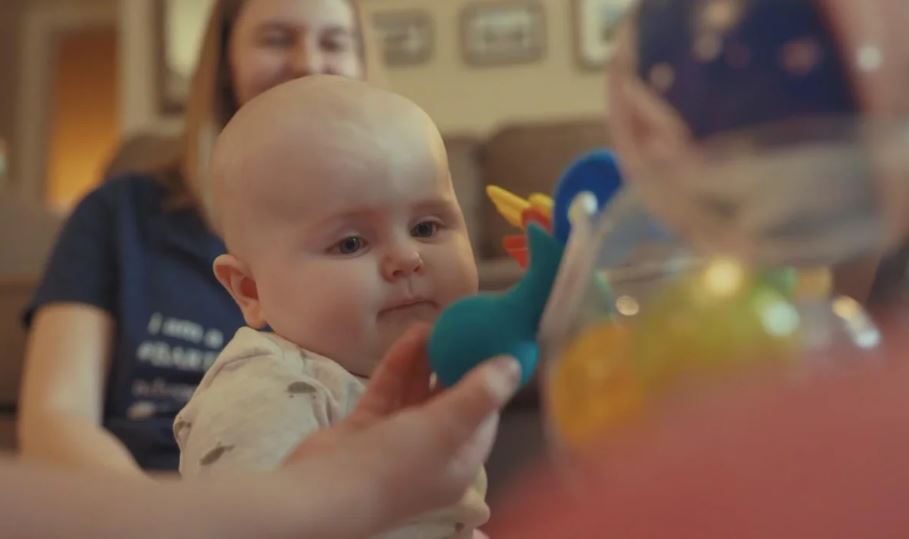Colorado family fights for access to lifesaving drug for infant with Barth syndrome

By Karen Morfitt
Click here for updates on this story
COLORADO (KCNC) — A Colorado family is in a race against time to secure access to an experimental drug that’s keeping their infant son alive.
Gilbert Dryden was born with Barth syndrome — an ultra-rare genetic condition that affects only one in 300,000 births, almost exclusively boys.
The disease compromises the mitochondria — the energy-producing structures in nearly every cell — and can lead to heart failure, even in infancy.
For Gilbert’s mom Madison Dryden, the condition is one she feared. Her brother, Ben, died from heart failure as a baby — a tragedy that left the family without answers for decades.
“His heart basically turned … it was turning into scar tissue, kind of like turning into stone,” Madison’s mother, Jeanne Eiss said, “There was nothing we could do.”
When Gilbert was admitted to the NICU shortly after birth, Madison’s thoughts went immediately to her late brother.
“Once we were admitted to the NICU, that was immediately where my mind went — to my brother Ben,” said Madison Dryden.
“I think it would be worse for her because she has hope,” Eiss said through tears as she thought back to losing her son.
At Children’s Hospital Colorado, pediatric cardiologist Dr. Kathryn Chatfield helped identify Gilbert’s condition.
“It’s so rare that in any given state there may be only one or two patients diagnosed,” Chatfield said. “When the mitochondria can’t produce enough energy, the heart muscle weakens. If that dysfunction progresses, the heart can fail — and ultimately, patients may die or require a transplant.”
The drug, elamipretide, is not yet FDA approved. But for critically ill patients like Gilbert, the FDA has made it available under emergency use authorization.
Dr. Brian Stauffer, a cardiologist and researcher at the University of Colorado Anschutz Medical Campus, worked with Chatfield and others on initial research into the drug starting in 2015.
“When we treated hearts with elamipretide, we saw significant improvement in mitochondrial function. More energy production, which we believe improves heart function,” said Stauffer.
For the Dryden family, the results were immediate and dramatic.
“Within a month of being on elamipretide, he got his NG tube out. The next month, he came home,” Madison said.
Despite a recommendation from an FDA advisory panel last October, final approval was delayed and then rejected in May. The agency cited the small trial size — and requested more data.
“We don’t have the luxury of waiting many more months or years,” said Chatfield. “Companies must eventually turn a profit to stay in business. If this stalls too long, they may have to stop production entirely.”
Rep. Jason Crow, who represents Colorado’s 6th Congressional District, is now leading a bipartisan push for action, with almost all of Colorado’s congressional delegation signing on to a letter urging the FDA to make a timely decision.
“If this is the only drug keeping your child alive — give people the damn drug,” Crow said in a Zoom interview. “We understand there’s a process, but make government work.”
In August, the FDA agreed to reconsider and a new drug application was resubmitted under an accelerated pathway. A final decision is now expected Sept. 26.
In the meantime, the Dryden family is counting every remaining vial in their refrigerator.
“We get a three-month supply,” Madison said. “We are talking end of October.”
“We had to sit down with our daughters and say: ‘We’re working hard on this because if Gilbert doesn’t get his medicine, his heart might stop working. And if his heart stops working, he will die,'” she said.
The FDA did not respond to a request for comment when contacted for this story. CBS Colorado will provide updates as more information becomes available.
Please note: This content carries a strict local market embargo. If you share the same market as the contributor of this article, you may not use it on any platform.